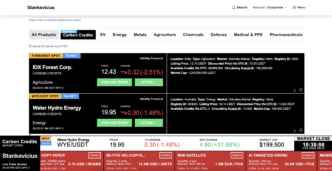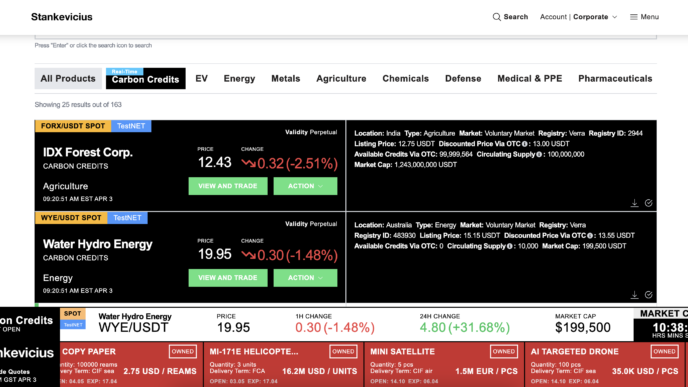China’s Shenzhen Data Exchange (SDEx) has taken a groundbreaking step in integrating decentralized AI-driven data exchange into real-world industrial applications. By leveraging Web3 infrastructure, SDEx is enabling cross-border AI data sharing at an unprecedented scale. As the largest provider of national-level data trading platforms in China, SDEx plays a pivotal role in advancing the country’s digital economy. The platform offers a robust suite of services, including regulatory compliance, secure data circulation, and streamlined market access for businesses and consumers looking to trade data assets efficiently.
Addressing the AI Data Shortage
A critical bottleneck in AI development is the increasing demand for high-quality, diverse datasets. Industries such as healthcare, autonomous driving, financial modeling, and smart manufacturing all rely on vast amounts of training data. However, traditional data collection models face severe limitations:
- Regulatory Barriers – Stricter data privacy laws, including GDPR and China’s PIPL, restrict cross-border data movement.
- Access Monopoly – Large tech corporations dominate data ownership, limiting access to valuable datasets for smaller players.
- Lack of Diversity – Centralized datasets can introduce biases into AI models, reducing their effectiveness across different demographics and use cases.
By adopting a decentralized AI (DeAI) approach, SDEx is making strides in overcoming these challenges, offering a more inclusive and scalable solution for AI data sourcing.
SDEx’s Decentralized AI Breakthrough
While global attention has largely focused on AI chip advancements, the equally crucial domain of AI data sourcing has been quietly transforming. In a recent milestone, SDEx facilitated a commercial data exchange between Shenzhen-based AI firm Intellifusion Technologies and OORT, a decentralized AI solution provider.
Intellifusion sought high-quality industrial datasets, including images of specialized respiratory masks and ventilation systems for smart factory applications. OORT’s solution, DataHub, enabled global data collection by distributing tasks across a decentralized network spanning over 130 countries. Contributors were incentivized through crypto rewards, enabling a more democratic and diverse data-gathering process that surpasses traditional Web2 methods. This collaboration marks a major step in the development of commercially viable decentralized data-sharing models.
The Limitations of Centralized Data Platforms
While existing platforms like Amazon’s AWS Data Exchange (ADX) offer AI data services, they come with notable constraints:
- Limited Open Access – ADX primarily caters to business-to-business (B2B) transactions, sidelining valuable community-generated datasets from researchers, startups, and independent data contributors.
- Cross-Border Compliance Issues – Many countries impose strict data localization laws, making international data exchanges difficult.
- Centralized Control – AWS controls data access, subscription management, and infrastructure, limiting user autonomy and flexibility.
- Interoperability Challenges – ADX lacks open-source integrations with Web3 technologies, restricting its usability across decentralized ecosystems and alternative cloud services.
SDEx’s decentralized framework is designed to address these challenges by fostering a transparent and permissionless data-sharing environment.
The Rise of Decentralized AI Alliances
Decentralized AI has recently gained traction, with industry leaders forming alliances to promote a more open and equitable AI ecosystem. Two key initiatives launched simultaneously:
- HumanAIx Alliance – Founded by Web3 leaders such as OORT, YGG, and NEO, this initiative aims to develop an open protocol for decentralized AI infrastructure. It integrates validation, storage, computing, and data layers to create a permissionless and scalable ecosystem.
- Open Agents Alliance (OAA) – Backed by NEAR, Aethir, and Coinbase, OAA seeks to establish a secure and cost-effective AI development environment, ensuring fair access to AI technologies.
While skepticism remains regarding the sustainability of many AI and crypto projects, the emergence of commercially viable DeAI models signals a significant industry shift. SDEx’s pioneering move into decentralized data collection could serve as a blueprint for future AI data exchanges worldwide.
A New Era for AI Data Markets
As global industries continue their AI-driven transformations, decentralized data solutions will play an increasingly critical role in ensuring access to high-quality, diverse datasets. The SDEx model highlights the potential of Web3 in fostering an open, collaborative AI future, offering a compelling alternative to the centralized data monopolies that currently dominate the industry. With growing interest in DeAI solutions, the future of AI data exchange is poised for a paradigm shift—one that prioritizes accessibility, compliance, and innovation.
















